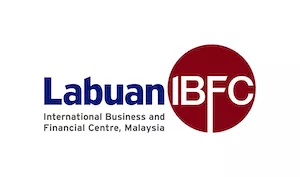- within Tax topic(s)
- with Senior Company Executives and HR
- with readers working within the Law Firm industries
ABSTRACT
Statement of Problem: The current Takaful models practised in Malaysia are facing issues and challenges with respect to Shariah compliance and good governance. For instance, Tabarru' funds in Malaysia have attracted tax on their investment returns. In addition, these Takaful models may not be in line with the legal framework of certain common law countries. These non-alignments may create difficulties for Takaful operators to penetrate non-Muslim countries.
The Key Objective: To study the weaknesses of the existing Takaful models and make recommendations that will enable Takaful operators to realise their full potential. We hypothesize that this can be done by adopting concept of trust, which is similar to the concept of cash Waqf, in the Takaful model.
Research Questions: Whether the concept of trust in Takaful model is Shariah-compliant? Whether the concept of trust if applied in Takaful model would meet regulatory approval? Whether the application of trust in Takaful model would provide benefits for the operators and its participants?
Research Methodology: The research will employ both library research and field work. For library research, textbooks and periodicals will be thoroughly examined and analysed. Qualitative analysis will be used to understand and expound the theoretical and practical aspect of the trust and Takaful concepts. Comparative analysis will be used when comparing the concept of trust with any acceptable practice in Shariah. Field study will include data gathering on the acceptability of the Takaful concepts in identified Muslim and non-Muslim countries. Interviews with Takaful practitioners, operators and policyholders in Malaysia will be conducted in order to understand the strengths and weaknesses of current Takaful models and ways to improve the models to enable Takaful to be a viable alternative to insurance in Muslim and non-Muslim markets. Interviews will also be conducted with Takaful practitioners, operators and policyholders in the United Kingdom, Singapore, and Indonesia on market penetration of the new proposed Trust Takaful Model.
Research Outcome(s): This research should be able to identify the strengths and weaknesses of the current Takaful models in order to further improve them and to provide a new Takaful model that is able to be integrated into Muslim and non-Muslim market.
Keywords: Takaful, Mudarabah, Wakalah, Waqf, Trust, Participants Risk Fund (PRF), Participants Investment Fund (PIF), Qard-Hassan
1. OVERVIEW OF TAKAFUL
1.1 Definition of Takaful
A Special Task Force was established by the Malaysian government in 1982 to study the viability of setting up of an Islamic insurance company. Following the recommendations of the Task Force, the Takaful Act (TA) was enacted in 1984 and the first Takaful operator was incorporated in the country in November 1984.
Takaful is an infinitive noun and a derivative from the Arabic root verb Kafala1 which means 'to guarantee'. The Task Force felt it was appropriate to have Takaful, as a mutual insurance to guarantee individuals in a group against loss or damage incurred. With this, Takaful then emerged as the alternative Islamic approach in insurance to the current conventional insurance. Takaful arrangement embraces the elements of mutual assistance and solidarity through the creation of the Takaful fund; a 'Takaful Pool' from the resources of its members. A member will join the scheme through paying Tabarru' into the Takaful fund as contribution for any specific risks that might adversely affect the contributor's life, properties or financial position. Tabarru' generally means donations, gifts or contributions. Members of the Takaful fund agree to pay a donation which is to be accumulated in the Takaful fund and specifically the 'risk fund'. Technically, Tabarru' is a unilateral declaration of intent and is a contract with benevolent nature in Islamic commercial law. The purpose of this type of contract is to favour the recipient without any specific consideration in return2. Hence, the concept of Tabarru' is the main pillar under the Takaful system, as it renders the element of uncertainty in a contract inconsequential. This corresponds to the Islamic legal maxim:
ةلاهجلاو
رارغلا
يف
تاعربتلا
نمرفتغي
"uncertainties are tolerable in a gratuitous
contract"
This makes it the most important element that differentiates Takaful from conventional insurance as it places emphasis on mutual act of good deeds and justice among its participants.
Furthermore, according to the Accounting and Auditing Organization for Islamic Financial Institutions (AAOIFI) standard No.133, the underlying concept of Tabarru' in Takaful contract is different from the literal understanding of Hibah (gift) or Sadaqah (donation). As spelt out in the Standard, Tabarru' is a commitment to donate (Iltizam bi al-Tabarru') with a condition of compensation4.
Under TA 19845, Takaful is defined as a scheme based on brotherhood, solidarity and mutual assistance which provides for mutual financial aid and assistance to the participants in case of need, whereby, the participants mutually agree to contribute for that purpose.
To view the full article click here.
Footnotes
1 BISC GROUP, "What's Takaful, A Guide to Islamic Insurance", BISC Group, 2008, P.26-27.
2 Dr. Asyraf Wajdi Dusuki
3 AAOIFI standard No. 13 states (Please note that in other documents it is said to be no: 26)
4 Mohd Fadzli Yusof, Wan Zamri Wan Ismail and Abdul Khudus Mohd Naaim, "Fundamentals of Takaful", IBFIM, Kuala Lumpur, 2011, p.19.
5 Mohd Fadzli Yusof, Wan Zamri Wan Ismail and Abdul Khudus Mohd Naaim, "Fundamentals of Takaful", IBFIM, Kuala Lumpur, 2011, p.17-18.
The content of this article is intended to provide a general guide to the subject matter. Specialist advice should be sought about your specific circumstances.
[View Source]

